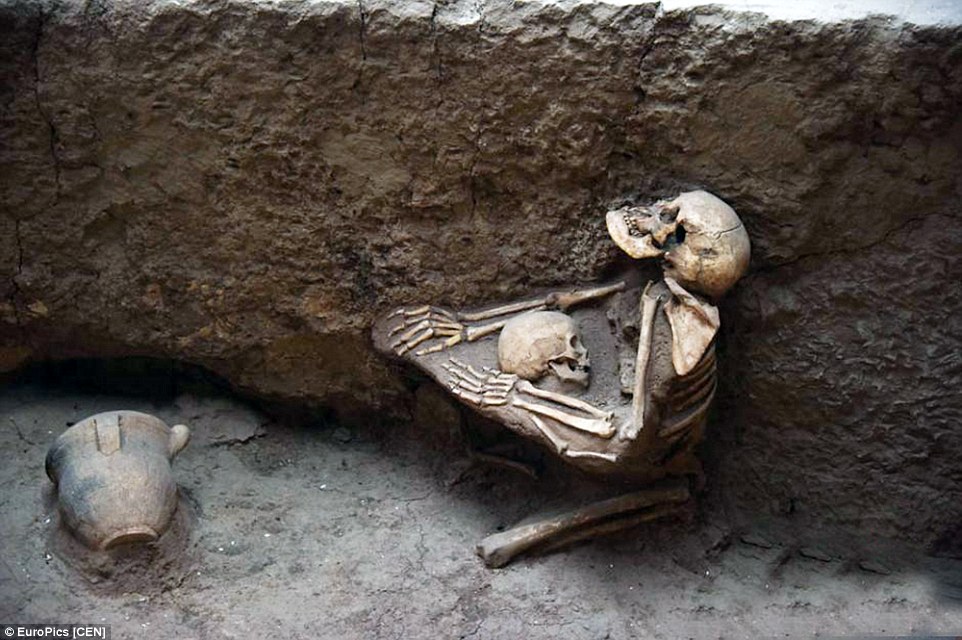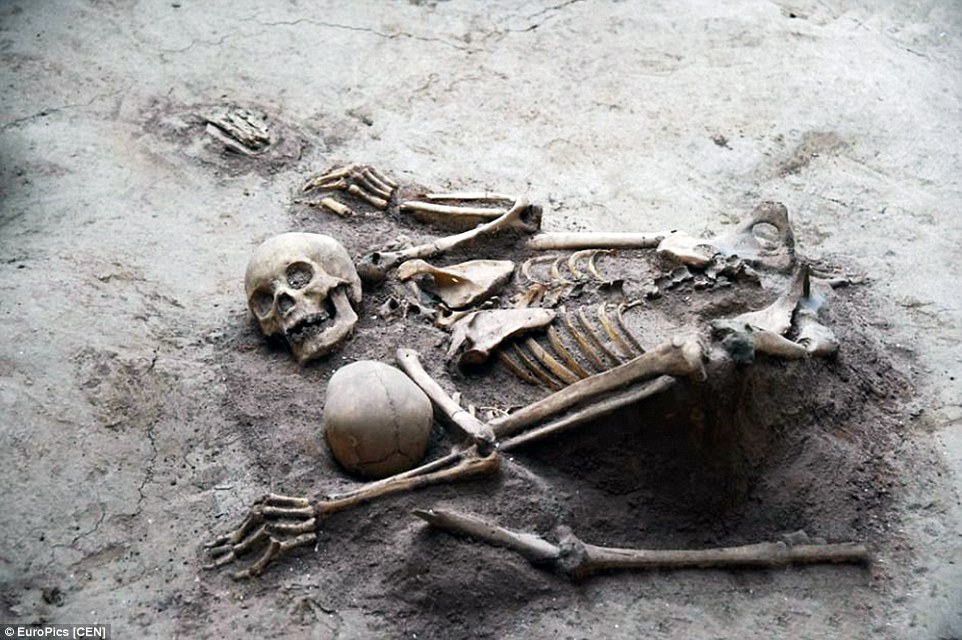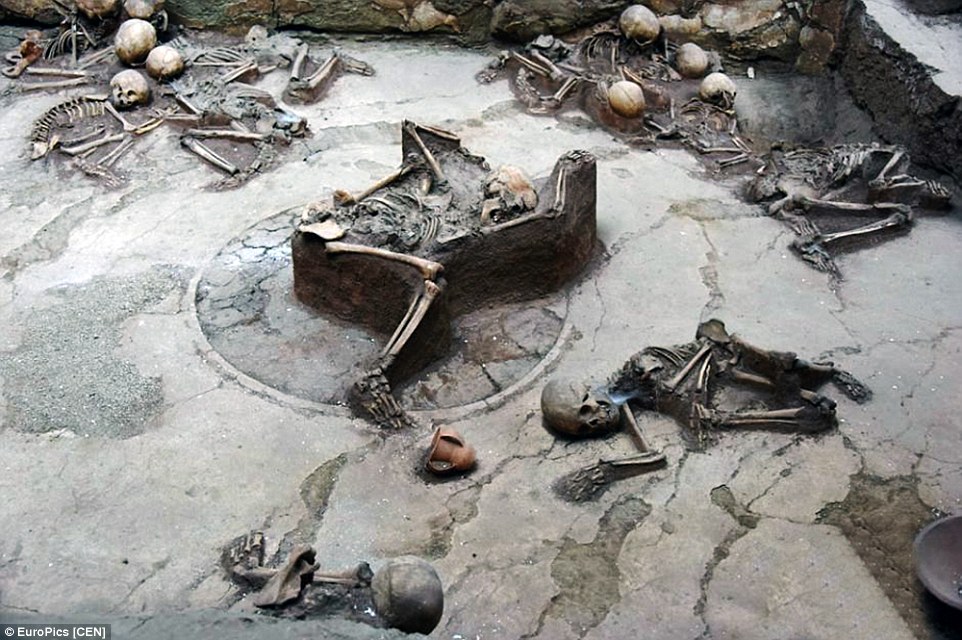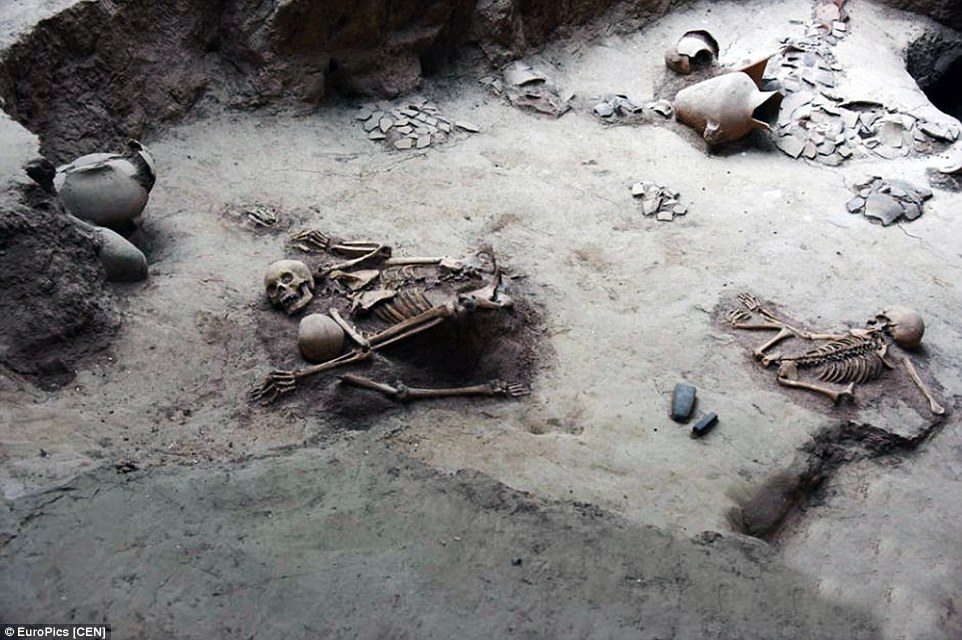In a discovery that transcends the boundaries of time, archaeologists in China have uncovered the interlocked skeletons of a mother and child, their loving embrace enduring for over 4,000 years. This heartbreaking find, made at the archaeological site known as the “Pompeii of the East,” offers insight into the tragic events that occurred in this ancient settlement during a devastating earthquake.

The “Pompeii of the East”
The Lajia site, located in Qinghai province, central China, has been dubbed the “Pompeii of the East” due to its remarkable similarities to the famous Roman city. Dating back to around 2,000 BC, this early Bronze Age settlement was once home to a thriving civilization along the upper reaches of the Yellow River. However, the tranquility of this ancient community was shattered by a powerful earthquake believed to have struck the region.

A Mother’s Desperate Embrace
As the earth trembled and the ground opened up, the inhabitants of Lajia were caught in a terrifying natural disaster. Among the victims were a mother and her child, whose skeletons were discovered in a poignant embrace, forever locked in a final, desperate attempt to protect one another.
The mother is believed to have been trying to shield her child from the devastating effects of the earthquake, her arms wrapped around the young one in a futile yet heartbreaking effort to save them both. This powerful image, captured in the frozen moment of their last embrace, serves as a poignant reminder of the fragility of human life and the depths of a parent’s love.

Preserving the Past
The Lajia site is not only a testament to the tragic fate of its inhabitants but also a treasure trove of historical significance. Spanning nearly 40,000 square feet, this archaeological excavation is the largest of its kind in China, offering a rare glimpse into the daily lives and cultural practices of an early Bronze Age civilization.
The incredibly well-preserved site has provided archaeologists with a wealth of information, from the intricate architectural structures to the artifacts and remains of the people who once called Lajia home. By piecing together the fragments of this lost world, researchers hope to uncover the true scale and impact of the catastrophic event that wiped out the entire settlement, drawing parallels to the devastating eruption that buried Pompeii.

A Lesson in Resilience and Compassion
The discovery of the mother and child’s intertwined skeletons serves as a poignant reminder of the enduring power of human connection and the depths of a parent’s love. In the face of unimaginable tragedy, these ancient souls found solace in each other’s embrace, their final moments forever etched in the annals of history.
As we reflect on this remarkable find, we are reminded of the fragility of life and the importance of cherishing every moment with our loved ones. The Lajia site stands as a testament to the resilience of the human spirit and the unwavering bonds that can transcend the boundaries of time and place.
The discovery of the 4,000-year-old skeletons of a mother and child, locked in a final embrace, has captivated the world and touched the hearts of countless individuals. This tragic yet profoundly moving find offers a glimpse into the lives of a lost civilization and the depths of human emotion, reminding us of the enduring power of love and the resilience of the human spirit. As we delve deeper into the mysteries of the Lajia site, we witness the enduring legacy of these ancient souls, whose story continues to inspire and captivate us across the vast expanse of time.



